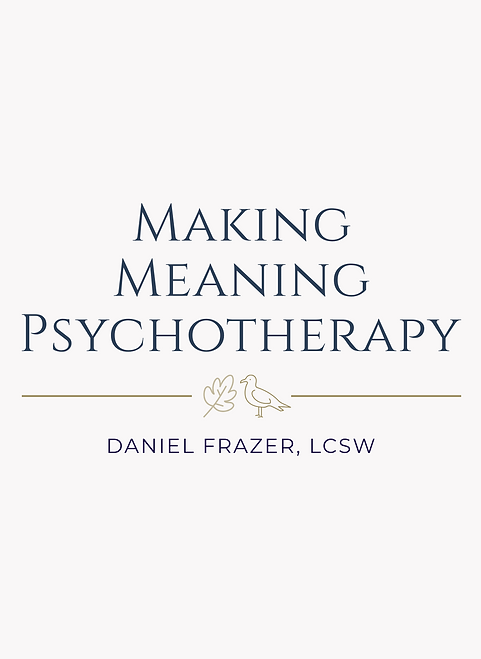
Areas of Specialty:
-
Obsessive Compulsive Disorder (OCD)
-
Panic Disorder/Panic Attacks
-
Agoraphobia/Monophobia
-
Specific Phobias
-
ARFID
-
Chronic Pain/Chronic Illness (PRT and Somatic Therapy)
-
Neurodivergence (Autism/ADHD)
-
Artificial Intelligence (AI) Over-reliance/dependence
-
Men's issues, trauma, identity and wellness.

OCD Specialist & Anxiety Disorders
Therapy for OCD and Anxiety in New York, New Jersey, and Maine
While I work with clients of all genders, my specialization is in helping men with OCD and anxiety-related disorders — including panic attacks, social anxiety, and agoraphobia. My training is extensive, with a strong focus on evidence-based modalities such as ERP (Exposure and Response Prevention) and I-CBT (Inference-Based Cognitive Behavioral Therapy). Above all, I value genuine human connection. I approach therapy with authenticity, a collaborative and decentralized mindset, and a deep commitment to meaningful, lasting outcomes for clients.


Common OCD Patterns Treated
• Contamination & Checking OCD – fears of germs, toxins, mistakes, or causing harm leading to repeated cleaning or checking.
• Harm & “Taboo” OCD – intrusive violent, sexual, religious, or moral thoughts, including postpartum and sexual orientation (SO-OCD) fears.
• Existential, Pure-O & Mental Compulsions – obsessive doubts, false memories, magical thinking, or mental reviewing about relationships (ROCD), reality, or life’s meaning.
• Health, Body & Sensorimotor OCD – preoccupation with illness, body sensations, or automatic functions like breathing or swallowing.
• Perfectionism & Symmetry OCD – distress over things not feeling “just right,” needing exactness or moral perfection.
I provide specialized OCD therapy for adults and teens in New York, New Jersey, and Maine, using ERP and I-CBT—two evidence-based treatments proven to help clients break the OCD cycle and reclaim their lives.


Men's Mental Health & Trauma
Men's Therapy in New York, New Jersey, and Maine


Men are facing a mental health crisis, largely shaped by a lack of specialized support, and the normalization or minimization of traumatic experiences.
I am invested in the special nuances of men's based mental health, the complexities of identity, sexuality, being a father for the first time and recovery from physical and sexual assault.
I am extensively trained in evidenced based trauma informed modalities.
Tech, AI, and Social-Media
Over-Dependence


An over reliance on AI, tech and social-media is becoming an emerging problem, often cloaking underlying self-esteem struggles, ADHD and anxiety disorders. Some have even referred to this as "AI Psychosis".
Recognizing this growing trend, I've dedicated a significant portion of my practice to assessing for and treating the underlying causes of this over-reliance and helping clients forge more meaningful connections and learning to trust their lived experiences.
Daniel Frazer, LCSW
I began my career in 2006, supporting adults with special needs and later young adults facing homelessness and mental health challenges. I developed a deep appreciation for strength and resilience across abilities and these roles led me to pursue clinical licensure as a psychotherapist.
I specialize in men’s mental health, focusing on identity, relationships, and societal expectations. I also have extensive experience with OCD, neurodiversity, chronic pain, agoraphobia/panic disorder and family trauma.
Outside of practice, I research men’s mental health policy, how moving away from nature increases anxiety and traditional folk-medicine. I'm a Brooklyn native, a writer and naturalist with a passion for bird-watching, moths and native trees.


Schedule 15 Minute consultation







